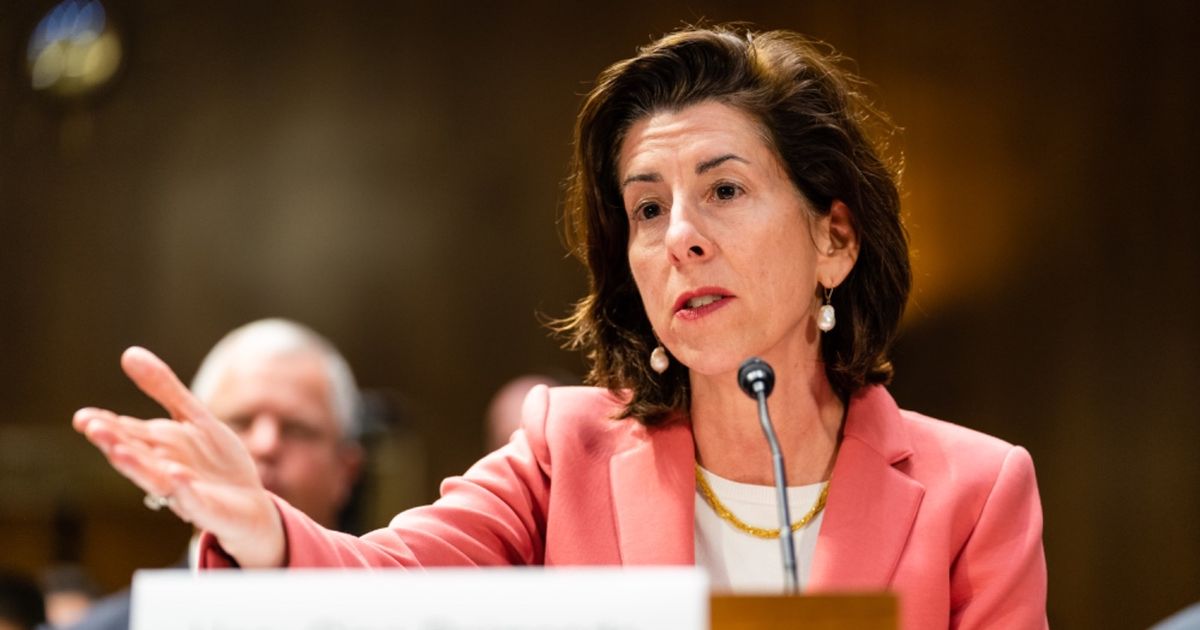The White House revealed a wide new restrictions on the sale of advanced smart discs made by ‘Invidia’ and similar companies, which made the Trump administration decide to implement these restrictions that face strong opposition to the industry. These rules will come into effect after a year as they determine boundaries on the capacity of computer that can be sold to most countries. In these countries, companies in these countries can overcome these national restrictions if they agree to a set of criteria related to safety and human rights, according to US officials on Sunday. Companies will have a suspension period of 120 days, which is a long exceptional period, to enable the Trump administration to make stability and adjustments to the rules after consulting with the industry and other countries, according to the statements of the Minister of Commerce, Gina Raymondo, before announcing these procedures. Why does America put new restrictions? Raymondo confirmed that the Biden Administration is trying to strike a balance between the protection of national security and the continuation of trading in the field of electronic slides. She added that the activities related to supply chains and games are excluded from new restrictions. It also indicated that Washington will be exempt from licenses to sell slides with low computer capacity, such as those sold to universities and research institutions. “It’s very difficult, and there’s no perfect basis. National security risk management requires an exact balance that keeps all these issues in mind,” Raymondo said. China’s growing technological capabilities have caused a greater concern in the United States. The step aims to limit the sale of artificial intelligence chips used in data centers, whether on the countries or companies, to focus the development of artificial intelligence in friendly countries, and insists that international companies meet the US standards, according to previous reports of “Bloomberg News”. The Biden Administration indicated that it discussed these measures with those who would follow it up, and one of the US officials said that the boom of exports on the export of the two parties was a major general priority to protect national security. Conditions for exporting “Invidia” chips similar to the rules applied to the importation of countries, companies in the United States and about 20 Allied countries may agree to the Standards of the US Government to get permission to export “Invidia” chips to the limited countries. To obtain this consent, companies must keep the vast majority of their computer ability in friendly countries. However, this consent will not include data centers in China, Russia, Macau and about 20 other sites under US arms ban. So the United States has already banned the levy of artificial intelligence chips in those places. These measures, which companies such as “Invidia” and “Oracle” warned that they could be catastrophic for the US technological sector, to ensure that the development of artificial intelligence worldwide corresponds to US standards and depends on American technology, not Chinese. The strengthening of artificial intelligence systems, national security adviser Jake Sullivan, in an interview with reporters, considered that “this step ensures that the infrastructure to train advanced artificial intelligence systems is developed, which is the most advanced systems in this area, within the United States or in our nearby allies, and that these ability is not performed abroad and was and some great legislators have warned that these restrictions can push clients to Chinese businesses, including Huawei, which is on the blacklist if they could not buy their favorite American products, or if the safety requirements related to these products are very stressful. Rules of the Biden Administration “threaten to waste the technological excellence achieved by America” by “manipulating the results of the market and combating competition.” Cruz and Maria Cantail, the most prominent Republicans and Democrats in the Trade Committee, expressed a similar view in a letter they sent to the Minister of Trade Gina Raymondo in December. The letter states: “Such strict restrictions will greatly hamper US technology sales abroad and the risk of paying foreign buyers to use themselves to Chinese competitors such as (Huawei).” In a statement issued last week, before the official announcement of the rules, Senator Ted Cruz said it would take into account ‘all tools’, including the Cra Act, to protect the US industry from ‘unnecessary intervention’. This law enables Congress to cancel some of the rules issued by the executive agencies. On the other hand, other lawmakers, including the leaders of the two parties, the China Committee of the House of Representatives, support the approach followed by the Biden Administration. Jimmy Godrich, prominent advisor for technology analysis issues at the Rand Foundation, said Chinese artificial intelligence chips are currently not global competition. He continued: “Due to the export restrictions, China could not produce enough artificial intelligence chips to meet its local needs, and even these discs were less developed with at least a generation or two compared to US chips.” In addition, the new rules place restrictions on the execution of the so -called ‘closed model weights’ for the first time. These weights control how to address the artificial intelligence models of data and the production of reactions and predictions.
It is implemented after a year … new US restrictions on “Invidia” chips
